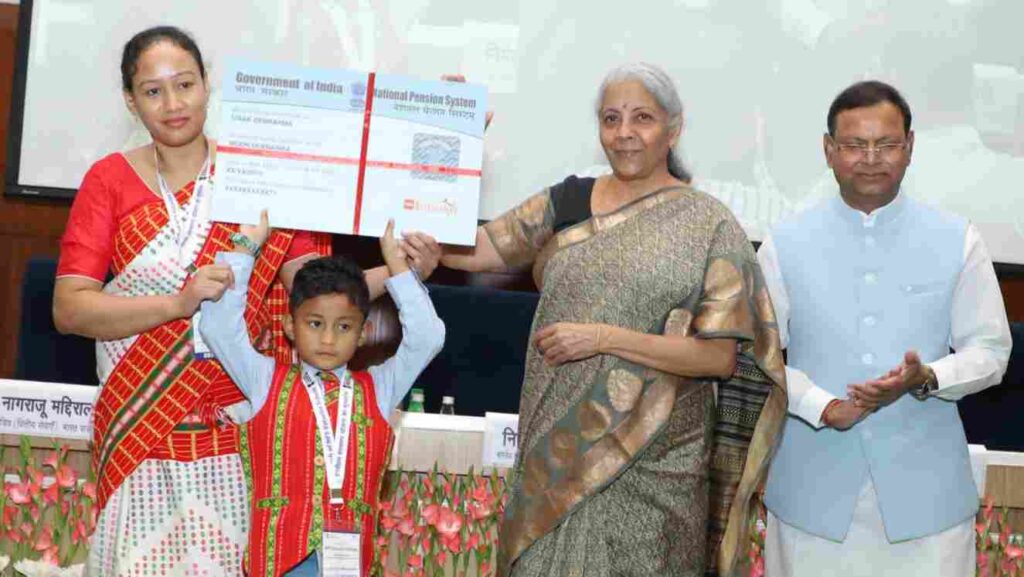NPS Vatsalya Pension scheme is targeted primarily at parents who want to save for the long-term financial well-being of their dependent children with disabilities.

The NPS Vatsalya Pension Scheme is an extension of the National Pension System (NPS) in India, introduced by the Pension Fund Regulatory and Development Authority (PFRDA). It aims to offer social security benefits specifically to parents who wish to contribute toward securing the financial future of their children, particularly those with disabilities. Here’s a detailed explanation of the scheme:
Also Read:- Star India vs Zee: Inside the ₹8,000 Crore Arbitration Battle Over Cricket Broadcast Rights
Key Features of the NPS Vatsalya Pension Scheme:
Target Group:
The scheme is targeted primarily at parents who want to save for the long-term financial well-being of their dependent children with disabilities. It ensures that even after the demise of the parents, the child continues to receive a regular pension, securing their future financial stability.
Structure:
The NPS Vatsalya scheme functions under the broader NPS framework, which is a voluntary, contributory pension scheme for individuals. It allows the parents to make regular contributions to the NPS account under their child’s name. The accumulated corpus is later used to provide a pension or regular income.
Eligibility:
Any Indian citizen (parent or guardian) can contribute to the NPS account of a disabled child.
The child should be dependent on the subscriber (parent or guardian), and the disability should be permanent.
The scheme is open to children with disabilities as defined under the Rights of Persons with Disabilities (RPWD) Act, 2016.
Also Read:- What is Unified Pension Scheme? Features and Benefits for Govt Employees
Contributions:
The parents/guardians contribute periodically to the child’s NPS account.
The minimum contribution amount is set under NPS guidelines (subject to changes over time), and there is flexibility in terms of contribution frequency (monthly, quarterly, etc.).
Withdrawal and Pension Benefits:
After the death of the parent, the child will start receiving the pension.
The pension would be a regular monthly payout derived from the accumulated corpus.
There are tax benefits under Section 80C and 80CCD of the Income Tax Act for the contributions made by parents.
Tax Benefits of NPS Vatsalya Pension Scheme:
Contributions made to the NPS Vatsalya Pension Scheme are eligible for tax deductions under the Income Tax Act.
Parents can claim tax benefits similar to other NPS schemes under Section 80C (up to INR 1.5 lakh) and Section 80CCD(1B) (an additional INR 50,000).
Objective:
The primary goal of the scheme is to ensure financial security for children with disabilities, so they receive a pension and financial support even if their parents or guardians are no longer around.
Also Read:- Who is Atishi Marlena, The New Chief Minister of Delhi?
Benefits of NPS Vatsalya Pension Scheme:
Ensures financial independence for children with disabilities.
Provides long-term financial planning and security for families.
Offers tax-saving opportunities for parents.
The NPS Vatsalya Pension Scheme is a thoughtful initiative that helps safeguard the future of dependent children with disabilities, ensuring they are financially secure in the absence of their parents or guardians.
